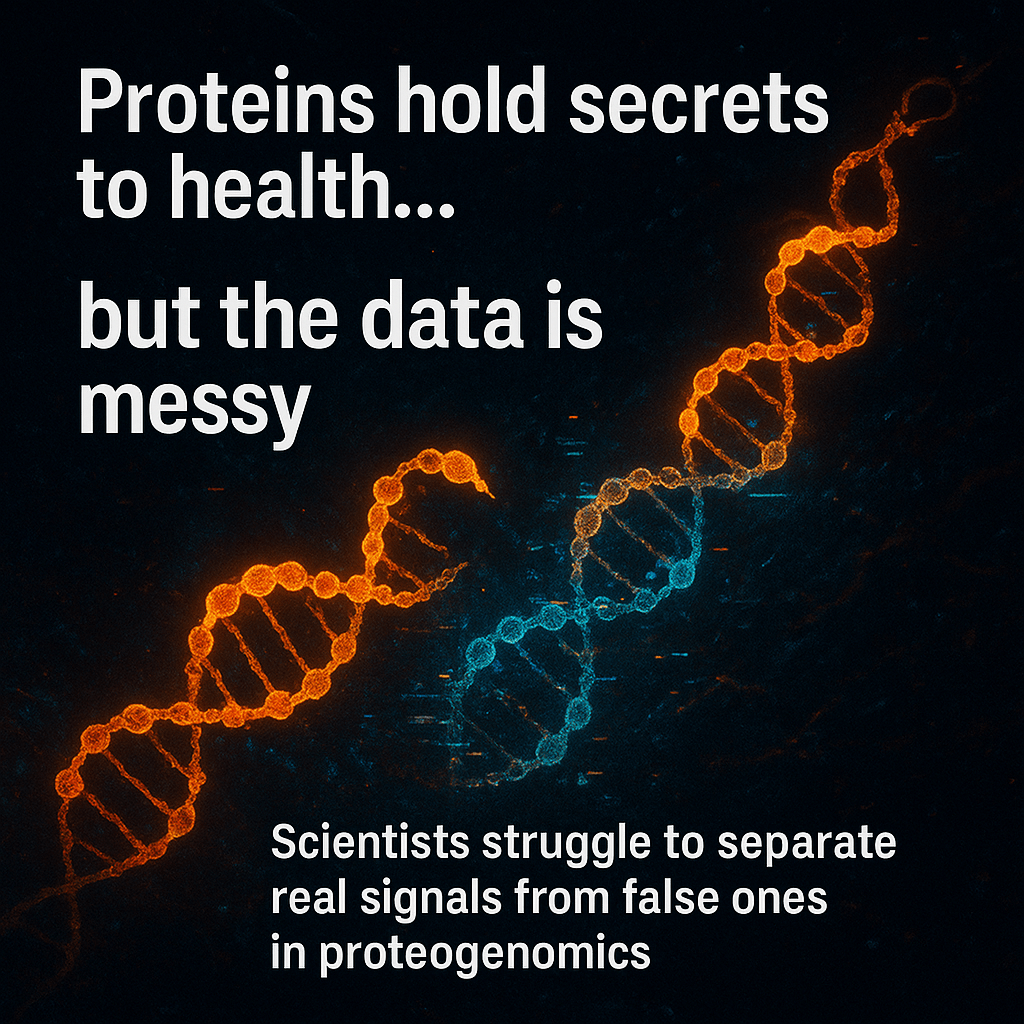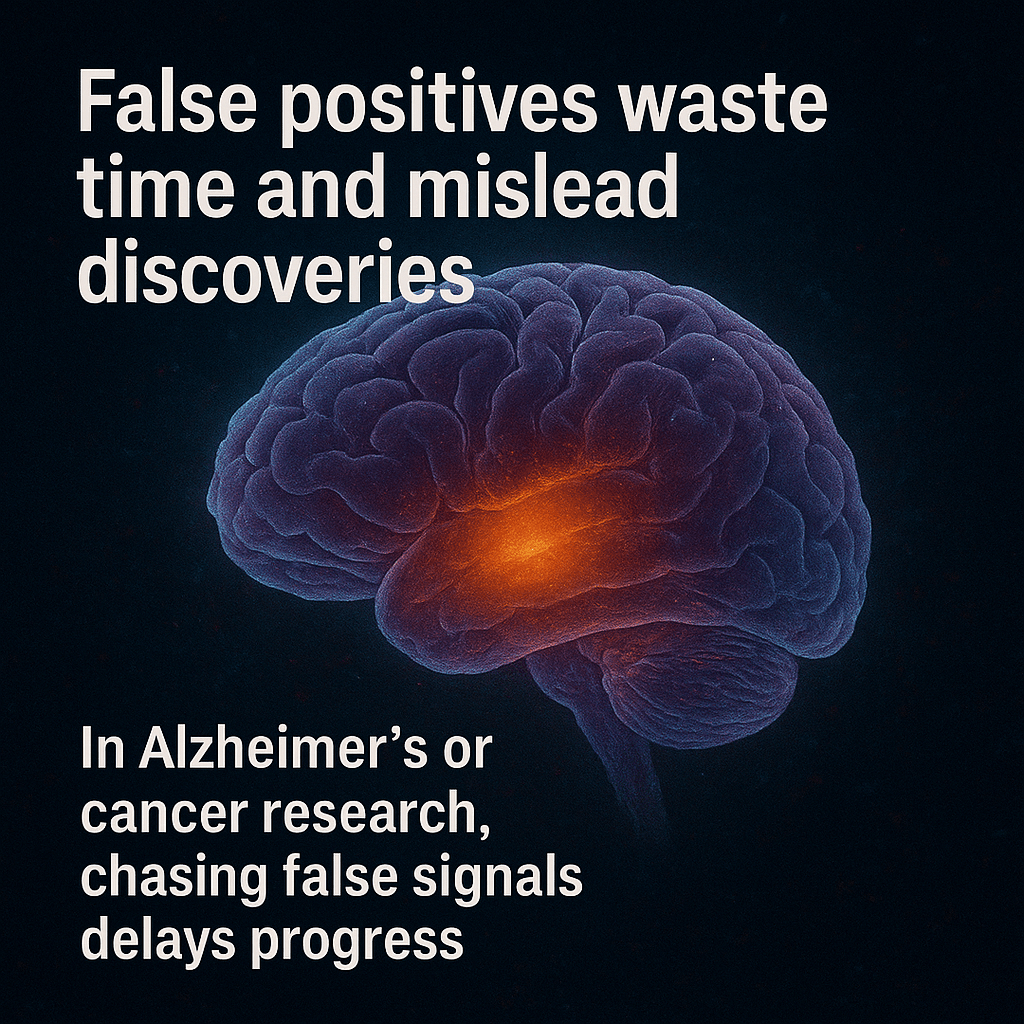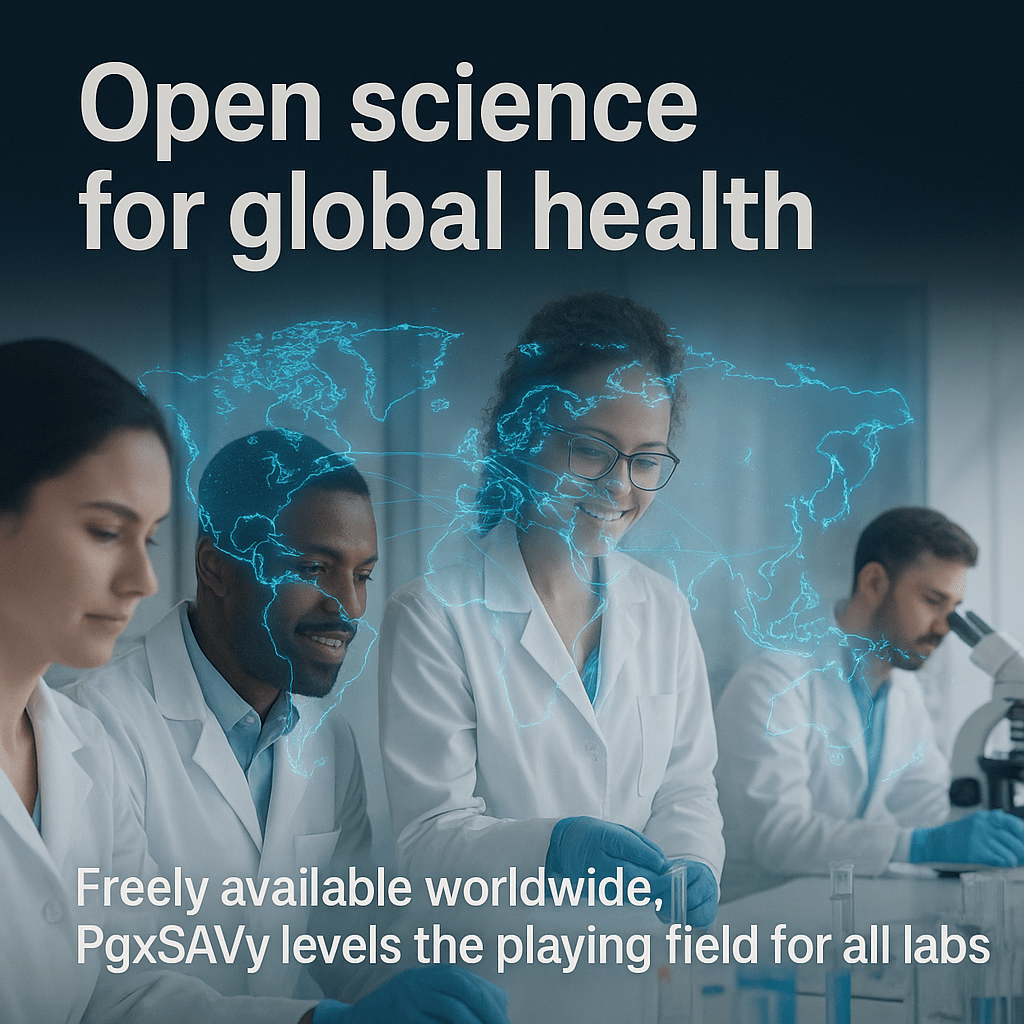When researchers look at proteins inside our bodies, they sometimes see glitches. These glitches, caused by genetic variations, can alter how proteins work and can even drive diseases like Alzheimer’s or cancer. Yet finding the real protein variants that matter is incredibly difficult. Most of the time, the data is noisy, filled with false signals that confuse scientists.
A new study led by Anurag Raj from the CSIR–Institute of Genomics and Integrative Biology (IGIB), New Delhi, with colleagues at the Translational Health Science and Technology Institute (THSTI), India, has introduced a breakthrough tool designed to solve this problem. Published in the Computational and Structural Biotechnology Journal, the tool is called PgxSAVy and it promises to transform how scientists detect, validate, and use protein variants in biomedical research.
Why protein glitches matter
Proteins are the workhorses of the cell. When genetic mutations alter even a single amino acid, the protein’s structure and function can change dramatically. These changes can mean the difference between health and disease. For instance, single nucleotide polymorphisms, or SNPs, often lead to what are known as single amino acid variations (SAVs).
SAVs have already been linked to many conditions, from diabetes to Parkinson’s and cancer. Detecting them accurately could help clinicians pinpoint risk factors, make earlier diagnoses, and even predict how a patient might respond to specific drugs. This is the essence of personalised medicine, a field that is increasingly shaping healthcare policy and attracting public attention as governments debate how to incorporate precision health into national health systems.
Yet there is a problem. Identifying these variants through a process called proteogenomics is riddled with false positives. In other words, scientists frequently think they have found a meaningful protein change when in reality it is just noise in the data. This wastes time, money, and resources.
The false positive problem
Proteogenomics works by comparing fragments of proteins measured through mass spectrometry with theoretical versions built from genetic data. The databases used are huge, sometimes containing billions of potential variants. With such vast search spaces, the chances of false matches soar.
Current approaches try to control these errors using what is known as false discovery rate (FDR). But global FDR often lumps all peptides together, ignoring the fact that variants need more stringent checks. Even class-specific FDR, or cFDR, which is tailored to variant peptides, fails to fully solve the problem.
To deal with this, laboratories worldwide rely on manual verification or patchwork filters, each doing things slightly differently. The lack of uniformity makes it hard to compare results across studies. Worse still, in high-stakes fields like Alzheimer’s research, chasing down false variants could delay discoveries by years.
PgxSAVy enters the scene
This is where PgxSAVy comes in. Developed by Raj and colleagues, PgxSAVy offers a rigorous, automated way to evaluate variant peptides. It combines multiple layers of analysis, including spectrum match quality, variant localisation, and cross-checks with wild type sequences.
At its core, the tool calculates something called the Variant Ambiguity Score (VAS). This score integrates fractional intensity coverage, b/y-ion continuity, and differences in scores between variant and wild-type and shuffled-variant decoys peptides. By folding these diverse measures into one robust metric, PgxSAVy can discriminate between true and false variant peptides with striking accuracy.
In simulations, it identified real variants correctly 98.43 percent of the time. That is a leap forward compared to traditional FDR methods.
Tested on complex diseases
The researchers put PgxSAVy to the test on two challenging datasets: one from Alzheimer’s disease brain samples and another from HEK293 cell lines. These datasets represent the messy, real-world conditions where false positives are most common.
From over 2.8 million spectra analysed, the tool classified thousands of variant matches. Around 23.8 percent were labelled confident, 11.1 percent semi-confident, and the rest doubtful. This triage is crucial because it prevents scientists from wasting effort on doubtful candidates while preserving high-quality leads for further study.
The Alzheimer’s dataset was especially telling. Variants were found in proteins tied to nerve growth, synaptic function, and myelin integrity, all processes known to be disrupted in neurodegenerative diseases. By focusing on reliable variants, PgxSAVy highlighted mutations with real biological significance.
Implications for personalised medicine
The rise of personalised medicine is one of the biggest stories in healthcare today. Governments in Europe, Asia, and North America are investing heavily in precision health initiatives, while pharmaceutical companies are racing to develop tailored therapies.
But for personalised medicine to deliver, the science must rest on solid ground. False discoveries not only undermine confidence but could also lead to ineffective or even harmful interventions. PgxSAVy offers a way to safeguard the quality of variant data feeding into these systems.
Imagine a cancer patient whose treatment plan depends on identifying protein variants in their tumour. A false signal could mean prescribing the wrong drug. With PgxSAVy’s ability to cut through the noise, the chances of this happening drop dramatically.



The role of open science
Another significant aspect of PgxSAVy is that it is open-source. The tool is freely available both as a webserver and as a standalone package on GitHub. This aligns with a broader movement in science where transparency and accessibility are seen as essential for accelerating discovery.
By making the software widely accessible, Raj and colleagues are levelling the playing field. Smaller labs and institutions in low and middle-income countries can now use the same advanced tools as major research centres, supporting global equity in biomedical research.
From lab bench to policy
The timing of this study is also important. As debates intensify over the regulation of artificial intelligence and bioinformatics in healthcare, tools like PgxSAVy highlight the need for robust, transparent quality controls.
In Europe, the conversation is tied to the rollout of the European Health Data Space, while in the United States, the Cancer Moonshot programme continues to push for data-driven discoveries. PgxSAVy provides a concrete example of how computational rigour can support these ambitious agendas.
Looking at current events
The COVID-19 pandemic exposed the fragility of healthcare systems when dealing with uncertain data. Misinterpretations of early genomic signals slowed down public health responses. Similarly, in the current race to develop treatments for Alzheimer’s disease, where drugs like lecanemab and donanemab are drawing headlines, the quality of biomarker discovery is under intense scrutiny.
PgxSAVy could not be timelier. By ensuring that the protein-level evidence underpinning drug discovery is reliable, it strengthens the bridge between genomics and clinical practice.
Challenges and opportunities
Of course, no tool is perfect. While PgxSAVy improves accuracy dramatically, scientists must still validate findings experimentally. The semi-confident category offers a grey zone where human judgement remains essential.
There is also the challenge of adoption. For PgxSAVy to make a real impact, researchers worldwide will need to incorporate it into their workflows. This requires training, outreach, and possibly integration with other proteogenomics platforms.
Yet the opportunity is enormous. By cutting down false positives, the tool frees up time and resources, allowing researchers to focus on real biological insights.
The bigger scientific story
Beyond immediate applications, PgxSAVy also contributes to the bigger scientific story of integrating multi-omics data. Combining genomics, proteomics, and transcriptomics is a frontier in systems biology. Reliable variant detection is a keystone for this integration.
As computational biology continues to intersect with artificial intelligence, tools like PgxSAVy will be part of a new generation of data filters, ensuring that AI models are trained on clean, trustworthy inputs. This is crucial at a time when concerns about bias and error in AI-driven health technologies are making front-page news.
The work of Anurag Raj and colleagues demonstrates that improving the quality of variant detection is not a technical footnote but a central requirement for the future of medicine. By combining rigorous statistical frameworks with open access design, PgxSAVy offers a way forward in a field often hampered by false leads.
As the world leans into precision health, the value of tools that can separate signal from noise cannot be overstated. With applications ranging from Alzheimer’s research to cancer therapy, and with availability to scientists everywhere, PgxSAVy shows how computational innovation can deliver real-world impact.
Reference
Raj, A., Aggarwal, S., Singh, P., Yadav, A. K., & Dash, D. (2024). PgxSAVy: A tool for comprehensive evaluation of variant peptide quality in proteogenomics – catching the (un)usual suspects. Computational and Structural Biotechnology Journal, 23, 711–722. https://doi.org/10.1016/j.csbj.2023.12.033




